Since Lotti and I have been working at the Reindeer Centre there has been two and a half pages of old English phrases hanging up in the office. It seems to have been there since time immemorial and no one is quite sure how or why it’s up there. We saw this as an opportunity!! Could we enhance our ‘olde’ vocabulary? Well, we were keen to give it a go…we challenged each other to fit in a single word from the list below on each Hill Trip that we did together. Here are some of the words, their definition (followed by their origin), followed by how Lotti and I used them in our tour.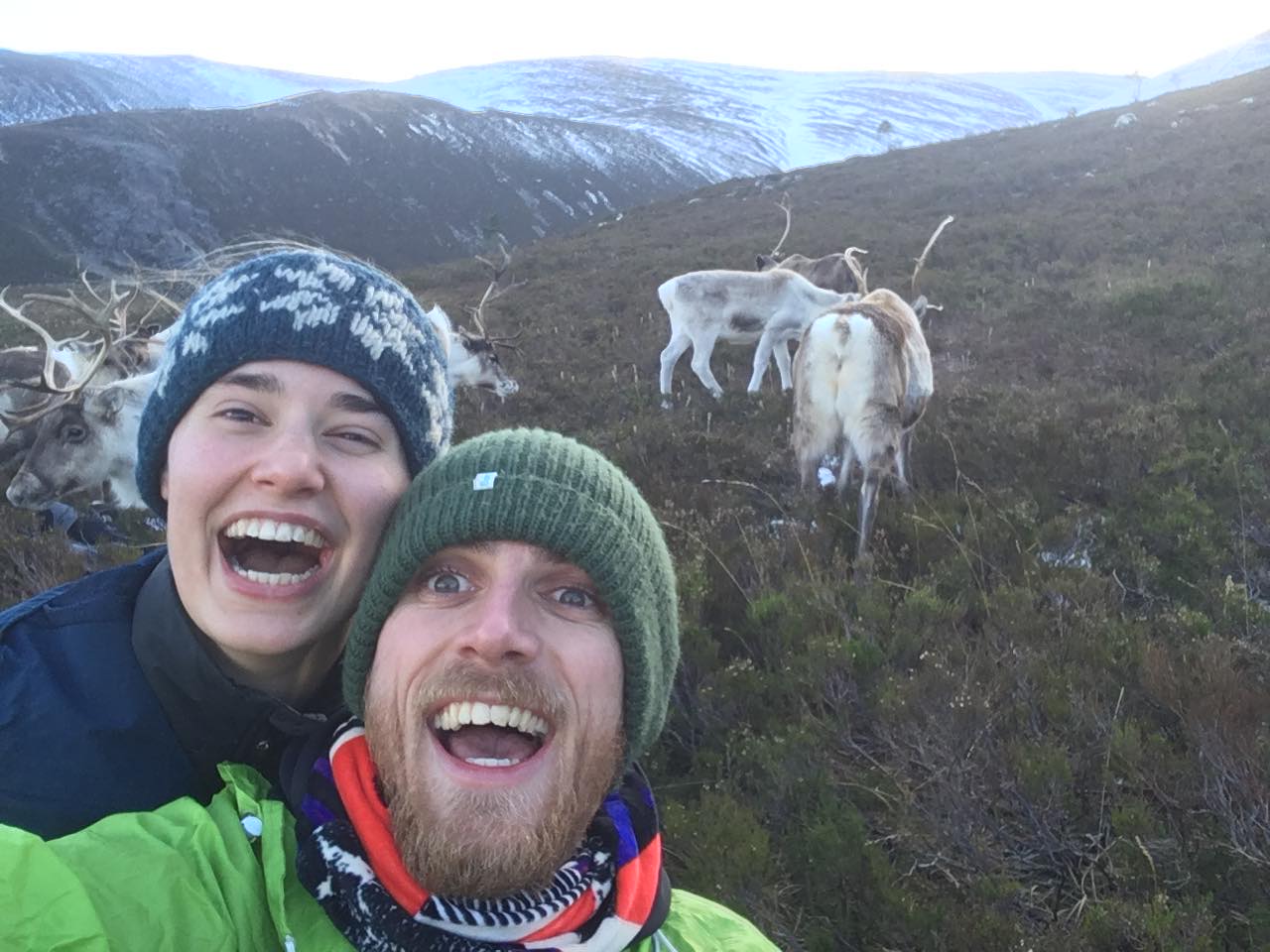
Callipygian – having beautifully shaped buttocks (1640’s).
“Ben and I know all the males in here by name, so we can tell you their name if you have a favourite. Some of the Bulls are so big by now that we can almost identify them by their callipygian bottoms”
Groaking – to silently watch someone whilst they are eating, in the hopes of being invited to join them (unknown origin).
“You might see the Reindeer groaking each other when we put the line of feed on the ground”
Editor’s Note – Groaking is probably the only word in this list that has become part of normal, everyday speech over the years at Reindeer House. Mainly because Hen is regularly accused of it.
Sluberdegullion – a slovenly, slobbering person (1650’s).
“A lot of reindeer adaptations are centred around energy conservation. As you’ve seen, they like to walk on the boardwalk with you and this is all part of the energy conservation instinct: it’s easier than walking along uneven grassland. And here is a good example, none like to conserve energy more than our very own sluberdegullion, Svalbard.”

Curmering – a low rumbling sound produced by the bowels (1880’s).
“Reindeer tend not to make too much noise. However, they do make a noise when moving. In fact, listen out for a noise whilst we walk through the enclosure alongside them, and Lotti will tell you more about that sound soon. I’ll give you a clue, it’s not a curmering.”
Snoutfair – a good-looking person (1500s).
“We run an adoption scheme so you can actually adopt the handsome Dr. Seuss or the fiery Scully here. Alternatively, you could try to adopt Ben here if you think he’s looking particularly snoutfair”

Resistentialism – the seemingly malevolent behaviour displayed by inanimate objects (1940s).
“You might wonder what’s in these green bags at mine and Lotti’s feet. It’s essentially reindeer bribery! Reindeer love their food which is fortunate for us as reindeer herders. The reindeer certainly don’t think the bags have any resistentialism.”
Jargogles – to confuse, bamboozle (1690’s).
“It absolutely jargogles me how quickly the antlers grow on some of our big boys”
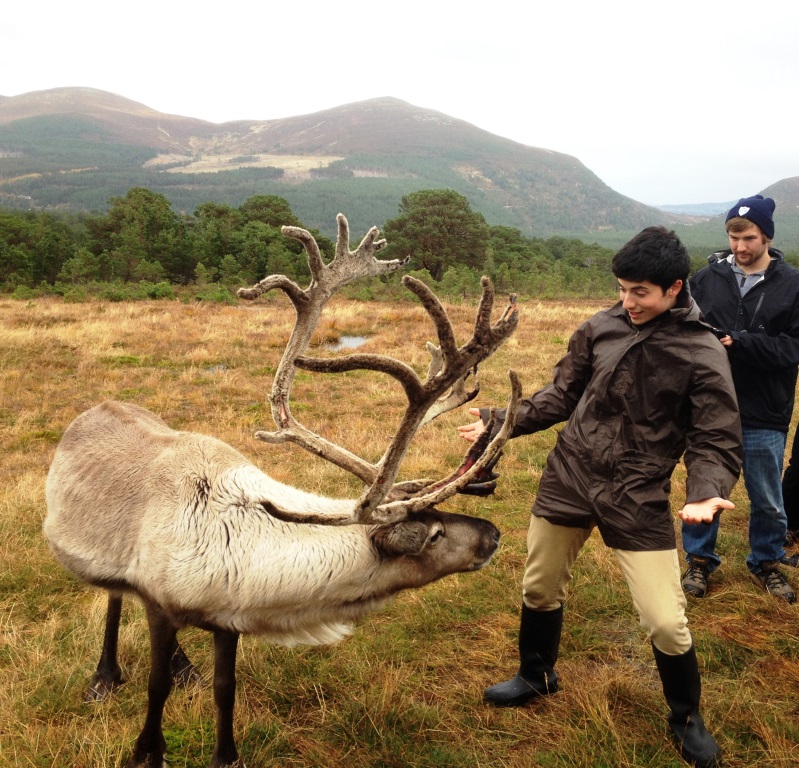
Quockerwodger – a wooden puppet, controlled by strings (1850’s).
“We don’t want to treat you as if you were quouckerwodgers, so you can leave when you want, just give Lotti or me a wave and be sure to shut the gates.”
Lunt – walking whilst smoking a pipe (1820’s).
“We will feed the reindeer soon, after which they’re likely to graze the grass or lounge about. Perhaps they’ll even siesta. I’m sure if they were human, they’d love to have a post-work lunt.”
Twattle – to gossip, or talk idly (1600’s).
“So, without further ado, we will head into the enclosure to meet the reindeer. We will gather around one last time when we’re in there to listen to some interesting ways that reindeer have adapted to their environment. Then you’ll have as much time as you’d like to be with the reindeer. So that we remain as one big group, if we could avoid any dawdling or twattling until we’ve gathered around one final time, then that would be great.”
Hugger mugger – to act in a secretive manner (1530’s).
“Cars that are this high up don’t expect to see a big handsome group like us crossing the road, so don’t act all hugger mugger about it, be sure to pick your right moment to cross”.
Cockalorum – a little man with a high opinion of himself (1710’s).
“All of our reindeer do have a name. They are actually named after a different theme every year. This reindeer here is called Bond. He’s a got a history of being a bit of a cockalorum, although he has been behaving better so far this year”
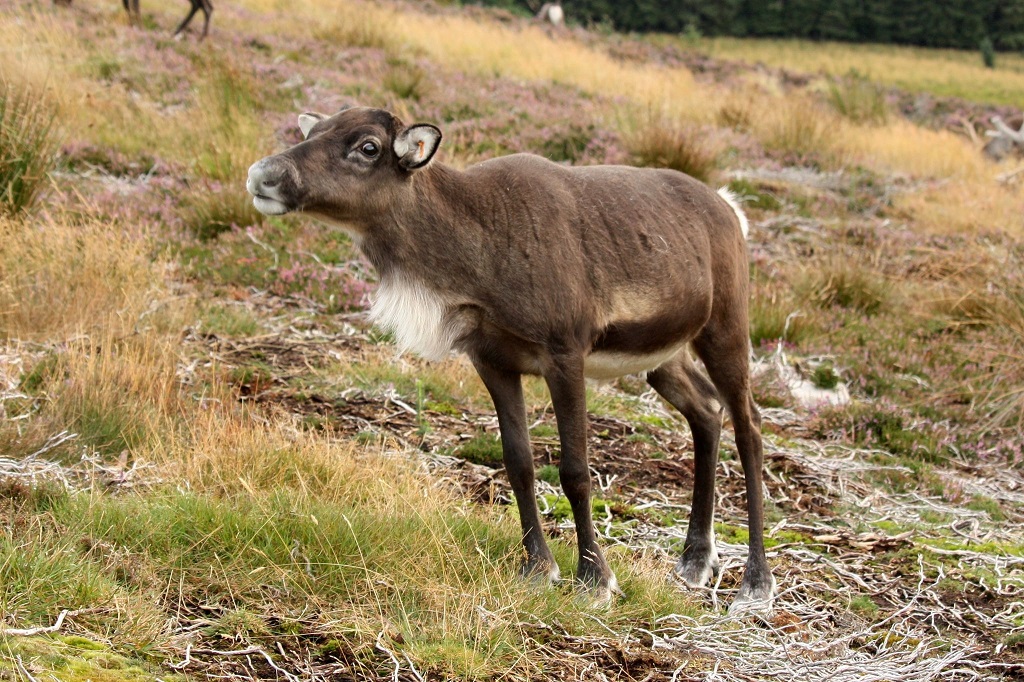
Crapulous – to feel ill because of excessive eating/drinking (1530’s).
“We’re on the last Hill Trip of the day so the Reindeer here are getting quite a lot of food this afternoon, but they’ll make light work of that. Hopefully they don’t feel too crapulous afterwards. But they are ruminants, so they often have a bit of grass or sedge for dessert once the mix has finished.”
Lethophobia – the fear of oblivion (1700’s).
“The reindeer here live in some of the harshest environment that the U.K. offers. In winter, the temperatures can reach as low as -20 degrees Celsius and the wind speed can exceed 100mph. However, this doesn’t trouble the reindeer too much, it hasn’t led to them developing any lethophobia. They are hardy animals who love the cold.”
Elflocks – tangled hair as if matted by elves (1590’s).
“The reindeer’s coats help keep them warm in the winter – reindeer have been known to survive down to very low temperatures when they have to. They do this by having thousands of hairs per square inch, all of which are hollow, making them great at trapping a base layer of heat next to their skin. As you can see the hair is currently lovely and sleek; it stays like this throughout winter and sheds in the summer. If you saw them in July it would look like they’ve got Elflocks.”
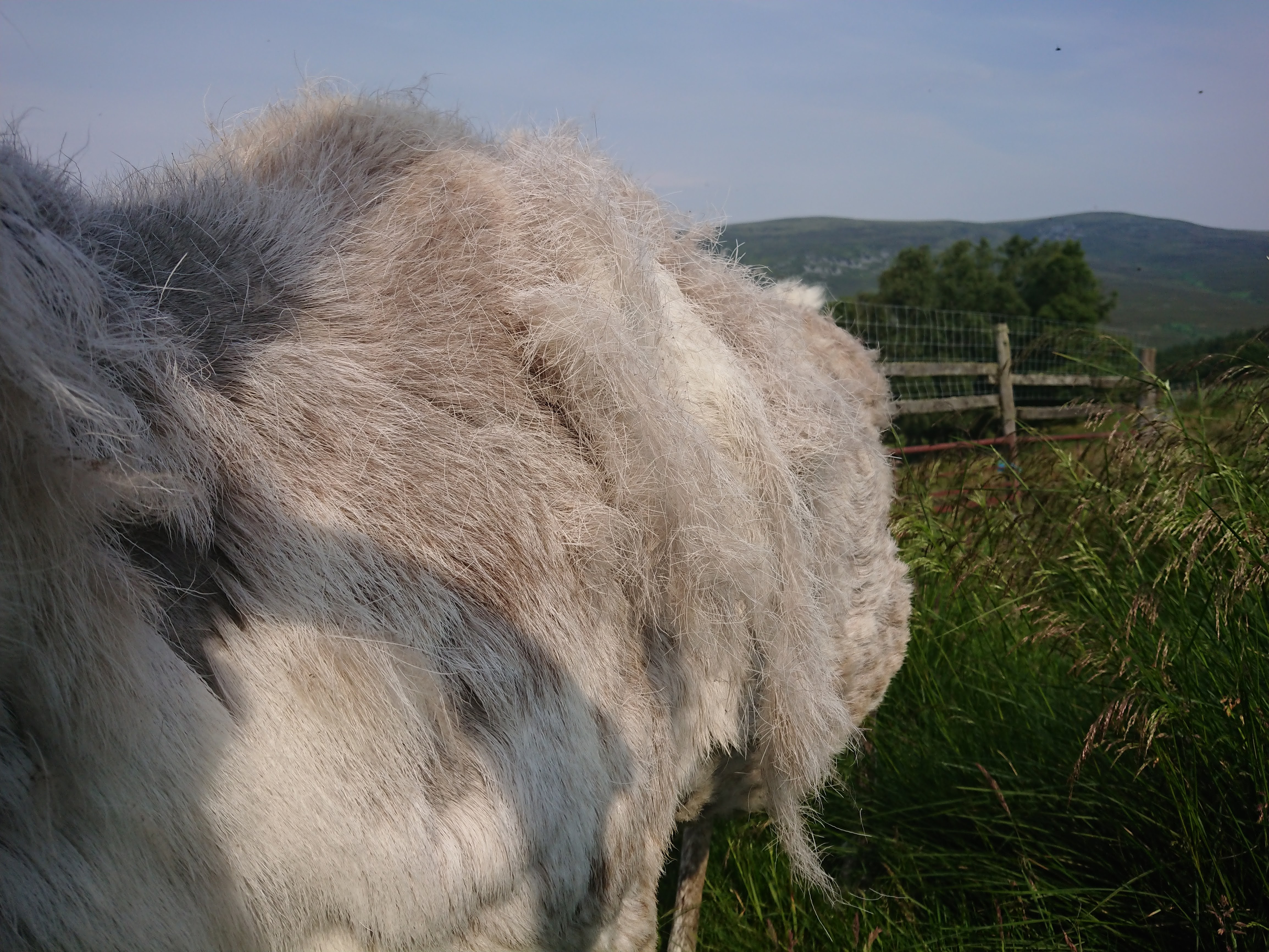
Curglaff – the shock one feels upon first plunging into cold water (Scots, 1800’s).
“Reindeer aren’t particularly tactile and some of them here today can be quite shy at times, so don’t be surprised if a reindeer looks curglaffed if you approached too far into their personal space.”
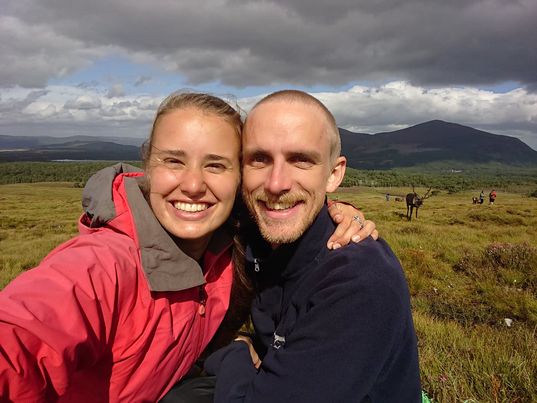
Ben and Lotti
